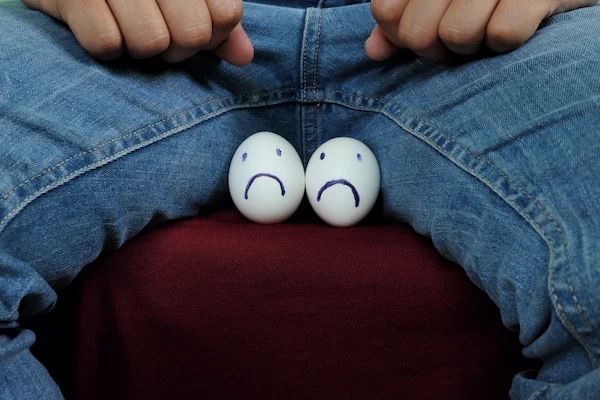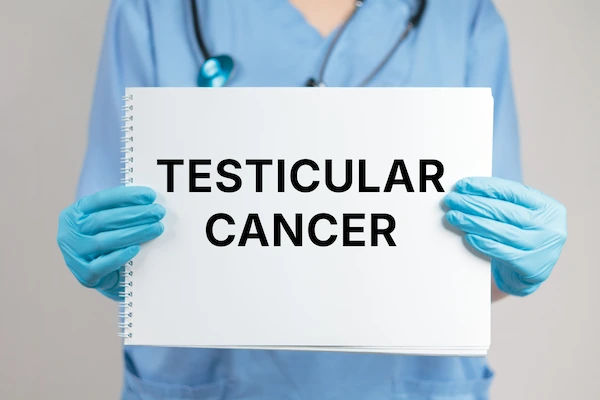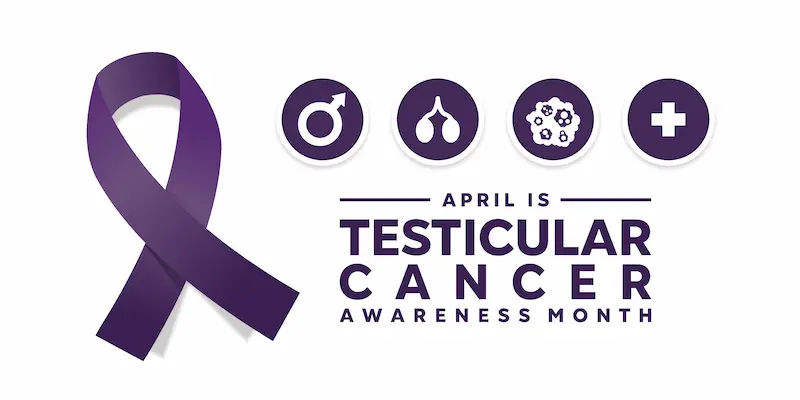Testicular Cancer and Fertility: A Guide to Sperm Preservation
Know about the testicular cancer and fertility issues, how it affects sperm production, its influence on fertility, sperm banking and more.

Written by Dr. Shaik Abdul Kalam
Reviewed by Dr. J T Hema Pratima MBBS, Fellowship in Diabetes Mellitus
Last updated on 13th Jan, 2026

Introduction
A testicular cancer diagnosis is life-altering, bringing a whirlwind of concerns—and rightfully, your immediate future and treatment are the priority. But for many men, a pressing long-term question emerges: "Will I still be able to have children?" The stark reality is that both testicular cancer and its essential treatments can reduce the sperm production you need for natural conception. This doesn't mean fatherhood is off the table; it means planning is crucial. This comprehensive guide will walk you through how cancer affects fertility, the impact of different treatments, and most importantly, the proactive steps you can take, like sperm banking, to preserve your options for the future.
How Testicular Cancer Affects Sperm Production
It's a common misconception that fertility issues only begin after treatment. In fact, the cancer itself can significantly impact sperm health even before a diagnosis is confirmed.
The Biological Impact of the Tumour Itself
The testicles are the factory for sperm production. The presence of a tumour disrupts this delicate environment. It can cause physical pressure, alter temperature regulation (crucial for sperm development), and release substances that impair the function of healthy testicular tissue. Studies show that a significant percentage of men with testicular cancer already have low sperm counts or poor sperm motility (movement) at the time of diagnosis, before any surgery, chemotherapy, or radiation.
How Cancer Disrupts Normal Hormone Function
Sperm production is meticulously governed by hormones, primarily testosterone and others released by the pituitary gland. Testicular cancer can disrupt this hormonal axis. Some types of germ cell tumours even produce their own hormones, like human chorionic gonadotropin (hCG), which can feed back to the brain and suppress the natural signals needed to produce sperm. This hormonal imbalance is a key reason why fertility after orchiectomy can be a concern even if one testicle remains.
Consult an Oncologist for Personalised Advice
How Treatment Can Further Impact Fertility
While treatments are necessary and life-saving, they can pose additional challenges to fertility.
Surgery (Orchiectomy): What to Expect
The removal of one testicle (radical inguinal orchiectomy) is the standard initial treatment. For many men, the remaining healthy testicle can compensate and maintain adequate testosterone and sperm production. However, this is not a guarantee. Some men may have pre-existing but undetected issues in the remaining testicle, or the body may not fully compensate, leading to suboptimal sperm output.
Chemotherapy: Effects on Sperm Count and Quality
Chemotherapy drugs are designed to kill rapidly dividing cells—a hallmark of cancer cells. Unfortunately, sperm cells also divide rapidly, making them collateral damage. The extent of the impact depends on the type and dose of drugs. Some regimens may cause temporary infertility, with sperm count recovery taking several months to a few years. High-dose chemotherapy can sometimes lead to permanent infertility. It is almost always recommended to bank sperm before starting chemo.
Radiation Therapy: Risks to the Remaining Testicle
While radiation is targeted, scatter radiation can sometimes reach the remaining testicle. This exposure can damage sperm-producing cells (spermatogonia). Fertility specialists take extreme care to shield the testicle during radiation for other cancers, but when treating testicular cancer, the proximity means the risk must be discussed. The effects can be temporary or permanent based on the dose.
The Vital Step: Sperm Banking Before Treatment
This is the most effective and empowering step you can take to secure your fertility future.
What is Sperm Cryopreservation?
Sperm cryopreservation is the process of freezing and storing semen samples in a specialised lab (cryobank). Sperm are placed in a liquid nitrogen vapour at -196°C, halting all biological activity and preserving them virtually indefinitely. This provides an insurance policy, allowing you to use your healthy, pre-treatment sperm later for assisted reproductive techniques.
The Process of Banking Sperm
The process is straightforward and non-invasive. It typically involves:
1. Consultation: Speaking with a fertility specialist or andrologist.
2. Testing: Screening for infectious diseases (standard protocol).
3. Providing Samples: Producing one or more semen samples via masturbation in a private room at the clinic or bank.
4. Analysis & Freezing: The sample is analysed for count and motility, then mixed with a cryoprotectant solution and frozen.
Questions to Ask Your Doctor About Sperm Banking
Is sperm banking recommended in my case?
- How quickly do I need to do this before starting treatment?
- Can you refer me to a reputable sperm bank or fertility clinic?
- What are the costs involved, and is it covered by insurance?
If Natural Conception Isn't Possible: Other Paths to Parenthood
If natural conception proves difficult after recovery, your banked sperm or other technologies offer hope.
Assisted Reproductive Technologies (ART) Overview
ART encompasses several medical procedures used to achieve pregnancy. For men who have undergone testicular cancer treatment, these technologies are highly successful.
In Vitro Fertilisation (IVF)
IVF involves stimulating the female partner’s ovaries to produce multiple eggs, which are then retrieved. The eggs are combined with sperm in a lab dish to facilitate fertilisation. The resulting embryos are then transferred to the uterus.
Intracytoplasmic Sperm Injection (ICSI)
ICSI (Intracytoplasmic Sperm Injection) is a revolutionary technique often used alongside IVF. It involves selecting a single, healthy sperm and injecting it directly into an egg. This is particularly beneficial if the post-treatment sperm count is very low or motility is poor. ICSI has dramatically improved the success rates for men with severe male factor infertility, making even a few banked sperm viable for creating a pregnancy.
Conclusion
A testicular cancer diagnosis forces you to focus on your health in the present, but it's equally important to safeguard your future. Understanding that this cancer and its treatments can reduce sperm production empowers you to take control. The decision to bank sperm is a powerful step toward ensuring that your dreams of fatherhood remain within reach. While the journey may involve challenges, modern medicine provides more options than ever before. From cryopreservation to advanced techniques like ICSI, the path to parenthood is viable. Your first and most important action is to have an open and urgent conversation with your urologist or oncologist about your fertility concerns before starting treatment.
Consult an Oncologist for Personalised Advice
Consult an Oncologist for Personalised Advice

Ms. Hiba Siddiqui
Oncologist
13 Years • BA (Hons), MA, Professional Certification Psycho-oncology, PhD
Delhi
Apollo Hospitals Indraprastha, Delhi

Dr. Asit Arora
Surgical Oncologist
20 Years • M.B.B.S., M.S. in General Surgery, M.Ch. in Gastrointestinal Surgery
Delhi
Apollo Hospitals Indraprastha, Delhi

Dr Devashish Tripathi
Radiation Specialist Oncologist
20 Years • MBBS, PLAB, MRCP (UK)- General Medicine, FRCR (Oncology), Certificate of Completion of Training (CCT)- Clinical Oncology
Delhi
Apollo Hospitals Indraprastha, Delhi
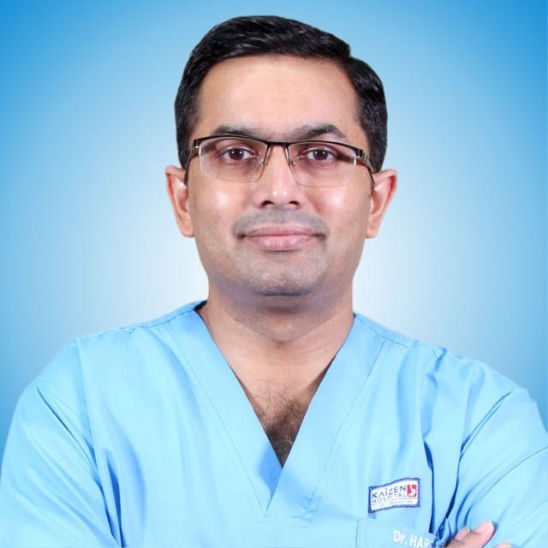
Dr. Harsh J Shah
Surgical Oncologist
15 Years • MS, MCh (GI), DrNB (GI)
Ahmedabad
Apollo Hospitals Gandhinagar, Ahmedabad
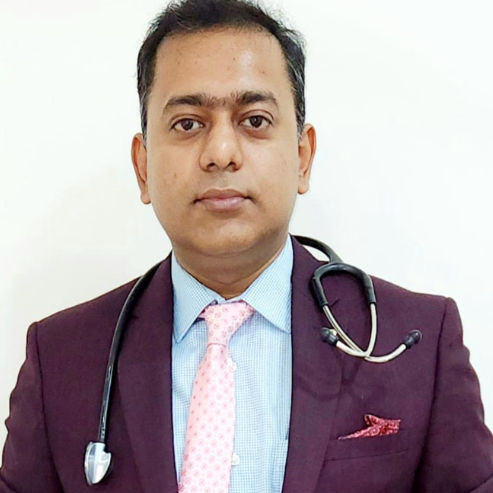
Dr.sanchayan Mandal
Medical Oncologist
17 Years • MBBS, DrNB( MEDICAL ONCOLOGY), DNB (RADIOTHERAPY),ECMO. PDCR. ASCO
Kolkata
Dr. Sanchayan Mandal Oncology Clinic, Kolkata
Consult an Oncologist for Personalised Advice

Ms. Hiba Siddiqui
Oncologist
13 Years • BA (Hons), MA, Professional Certification Psycho-oncology, PhD
Delhi
Apollo Hospitals Indraprastha, Delhi

Dr. Asit Arora
Surgical Oncologist
20 Years • M.B.B.S., M.S. in General Surgery, M.Ch. in Gastrointestinal Surgery
Delhi
Apollo Hospitals Indraprastha, Delhi

Dr Devashish Tripathi
Radiation Specialist Oncologist
20 Years • MBBS, PLAB, MRCP (UK)- General Medicine, FRCR (Oncology), Certificate of Completion of Training (CCT)- Clinical Oncology
Delhi
Apollo Hospitals Indraprastha, Delhi

Dr. Harsh J Shah
Surgical Oncologist
15 Years • MS, MCh (GI), DrNB (GI)
Ahmedabad
Apollo Hospitals Gandhinagar, Ahmedabad

Dr.sanchayan Mandal
Medical Oncologist
17 Years • MBBS, DrNB( MEDICAL ONCOLOGY), DNB (RADIOTHERAPY),ECMO. PDCR. ASCO
Kolkata
Dr. Sanchayan Mandal Oncology Clinic, Kolkata
More articles from Testicular Cancer
Frequently Asked Questions
Can I still father a child naturally with one testicle?
Yes, it is very possible. Many men with one healthy testicle produce enough sperm for natural conception. However, it's not guaranteed, as the cancer itself may have affected sperm production beforehand. A semen analysis after recovery is the best way to assess this.
How long after chemotherapy does it take for sperm count to recover?
It varies widely based on the drugs and doses used. Recovery can take anywhere from a few months to 2-5 years. In some cases, especially with high-dose regimens, recovery may not occur. This uncertainty is why sperm banking is so strongly recommended.
Is the sperm banking process expensive?
There are costs associated with initial testing, freezing, and annual storage fees. Many insurance plans may cover part of it, especially when medically necessary like before cancer treatment. Costs vary by clinic and location, so it's important to ask for a detailed breakdown.
Are children conceived with banked sperm or IVF/ICSI healthy?
Yes, extensive research over decades has found no increased risk of birth defects or developmental issues in children conceived using sperm banked before cancer treatment or through ART procedures like IVF and ICSI compared to children conceived naturally.
What if I didn’t bank sperm before treatment and now have fertility issues?
There are still options. First, a fertility specialist can perform a semen analysis to see if any sperm are present. Even if counts are very low, techniques like IVF with ICSI can be used. If no sperm are found in the ejaculate, surgical sperm retrieval procedures (like TESE) from the testicle may be an option. Consulting a specialist is crucial.
